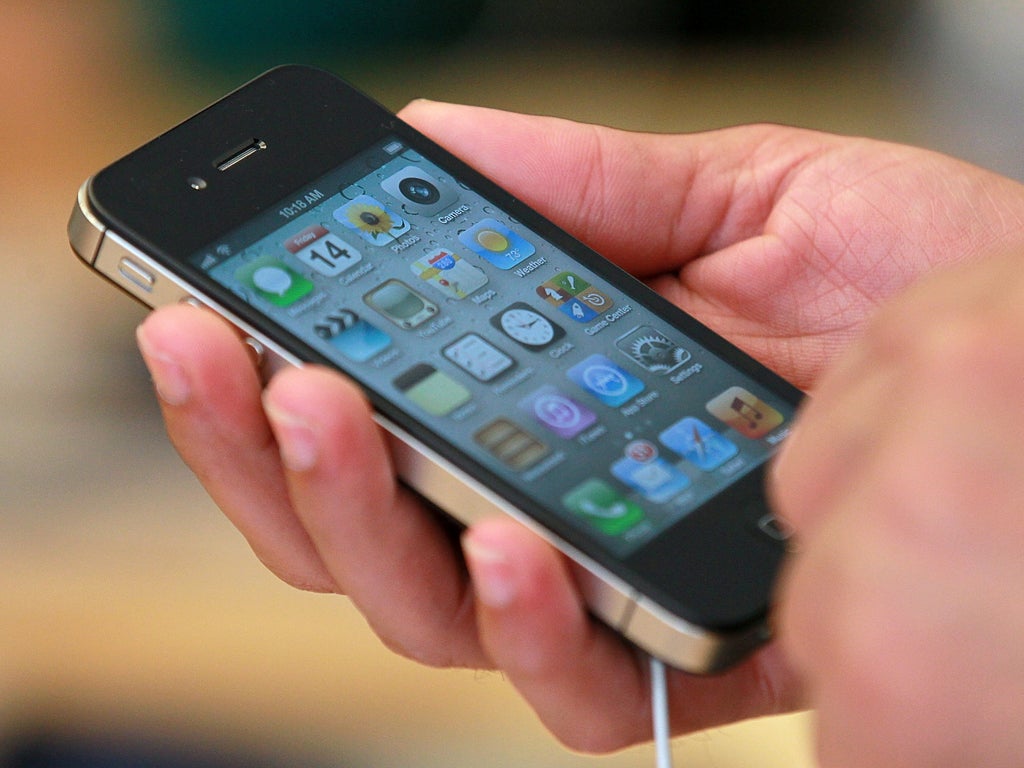Girls suffering horrific abuse online in form of pornographic pictures, explicit messages and cyberstalking
'I used to get a lot of messages from boys asking me to send nudes or blackmailing me about a picture that I posted that they're going share it or edit it in a bad way,' says young woman

Your support helps us to tell the story
From reproductive rights to climate change to Big Tech, The Independent is on the ground when the story is developing. Whether it's investigating the financials of Elon Musk's pro-Trump PAC or producing our latest documentary, 'The A Word', which shines a light on the American women fighting for reproductive rights, we know how important it is to parse out the facts from the messaging.
At such a critical moment in US history, we need reporters on the ground. Your donation allows us to keep sending journalists to speak to both sides of the story.
The Independent is trusted by Americans across the entire political spectrum. And unlike many other quality news outlets, we choose not to lock Americans out of our reporting and analysis with paywalls. We believe quality journalism should be available to everyone, paid for by those who can afford it.
Your support makes all the difference.One in five girls around the world have left social media or substantially curbed their usage after being harassed, a major study has found.
Researchers found girls in both high and low-income nations are frequently sent pornographic pictures and explicit messages - as well as being forced to endure cyberstalking or other troubling types of abuse on social media platforms.
Plan International, which polled 14,000 girls aged between 15 and 25 in 22 countries, discovered more than half of girls and young have been harassed or abused on the internet.
The study, which is the biggest of its type, found one in five reported they were left anxious about their own physical safety or that of a friend after suffering abuse online.
Anne-Birgitte Albrectsen, CEO of Plan International, noted that girls across a range of continents are suffering similar experiences of harassment and discrimination.
She added: “They are being left to deal with online violence on their own, with profound consequences for their confidence and wellbeing.
“These attacks may not be physical, but they are often threatening, relentless, and limit girls’ freedom of expression. Driving girls out of online spaces is hugely disempowering in an increasingly digital world and damages their ability to be seen, heard and become leaders.
“Disappointingly, they are being left to deal with online violence on their own, with profound consequences for their confidence and wellbeing. With Covid-19 driving more of our lives online and with internet access around the world improving, it is time for digital platforms to step up and protect their users.”
Facebook was the social media site where attacks were found to be most prevalent - with 39 per cent reporting they have suffered harassment on the platform – but abuse was also found to take place on Instagram, WhatsApp, Twitter, Snapchat and TikTok.
Almost two thirds of girls who have been harassed said they had been subjected to abusive and derogatory language, while 40 per cent said they had been deliberately embarrassed. Some 39 per cent said they had endured threats of sexual violence - with the same proportion having experienced body shaming.
A 20-year-old woman from Sudan, who spoke to researchers about experiences she had online when she was younger, said: “I used to get a lot of messages from boys asking me to send nudes or blackmailing me about a picture that I posted that they're going share it or edit it in a bad way and share it with everyone if I don't do this or that. I used to get a lot of messages from boys asking me to send nudes.
“Or just generally talking, like saying bad words to me. At that young age, it was, honestly, horrible. So, it was the worst time in my life, using social media. Between the age of nine and 14.”
More than a third of girls who are from an ethnic minority that had experienced abuse say they are targeted because of their race or ethnicity, while more than half who are LGBT+ say they are harassed because of their sexuality or gender identity.
A 17-year-old girl from Ecuador, who spoke to researchers, said: “I would block but he would create more profiles and keep sending me pictures of me.”
Around four in ten of those polled said experiencing abuse online makes them suffer mental and emotional stress – with the same amount saying social media firms must do more to safeguard them from harm.
It comes after research by Plan International UK carried out in January found two thirds of young women and girls have experienced unwanted sexual attention or harassment in a public place, such as a bus stop, park or on the street.
Some 35 per cent of those who had suffered harassment said it had happened while they were in their school uniform.


Join our commenting forum
Join thought-provoking conversations, follow other Independent readers and see their replies
Comments